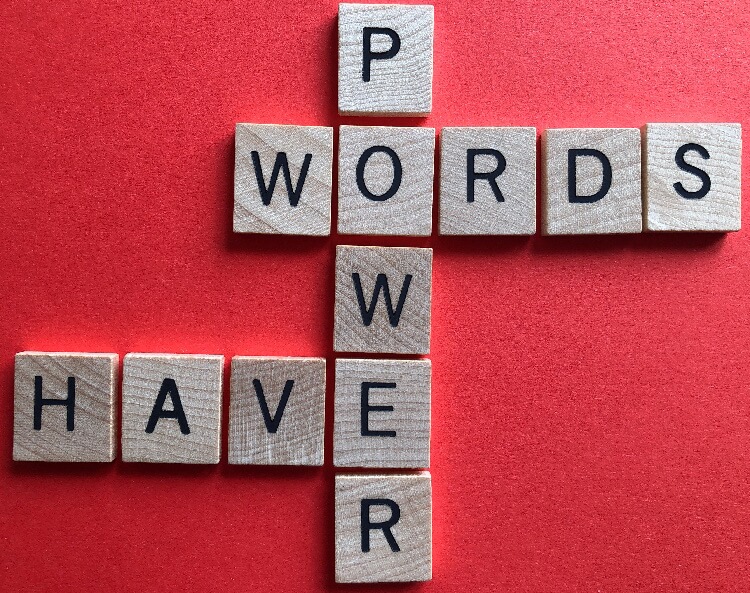Mary Brewster once said on an NYS OASIS podcast, “Imagine if every single word that is used to describe you is a word that hurts you.”
While this may sound like a nasty and rare circumstance, this is the reality for thousands of people in the UK who are suffering from addiction. Dependence is a particularly isolating disorder, which takes consideration, encouragement and connection to overcome. Yet for many people living with this condition, negative stereotyping is a daily reality.

At a time when conversations about mental health and wellbeing are growing more compassionate, the language around addiction often still lags behind. Common phrases like “clean” and “addict” carry more than just meaning; they carry judgement, meaning language around mental health, even coming from a place of love and understanding, can be harmful. It’s time to shed light on how language choice can push someone closer or further from recovery through the words we choose.
Medical language on addiction vs common phrases
Language does more than describe; it defines how we think. In certain areas, such as medical settings, everyone follows and respects the terminology used in a consultation. Specific words give clarity, structure, and a shared understanding between professionals and patients. While patients may not understand the specifics of diagnoses or procedures, medical terms exist to avoid ambiguity and focus on the facts.
In the context of addiction, that precision matters. When a clinician talks about dependence, withdrawal, or relapse prevention, they’re describing realities – things that can be measured and treated. It’s factual, not emotional, and that helps recovery feel possible. Common language, on the other hand, tends to come from opinion rather than reality. Words like “alcoholic,“ or casual phrases like “no self-control” carry assumptions and shame. They suggest a moral weakness rather than a medical condition, and they frame the conversation as criticism instead of care.
When we use factual, professional language, we ground the discussion in reality and remove the sense of blame. It becomes about diagnosis, treatment, and achievable goals rather than accusation. Shifting language from opinion to understanding is often the first real step toward helping someone recover from addiction.
Why “addict” is a tricky word
The word “addict” means very different things depending on where you are in the recovery journey. In 12-step fellowships, it’s a declaration of honesty. Saying “I’m an addict” can be one of the bravest things a person ever says. Within that setting, it becomes a symbol of acceptance and courage. The word is used to ground them when faced with challenges and acts as a reminder of the hard work they did to turn denial into hope.
However, that understanding doesn’t happen straight away. In treatment, the word only gains meaning once someone learns what it really represents. Through therapy, workshops, and hearing other people’s stories, they begin to separate shame from responsibility and illness from identity. Only then can the word “addict” be worn as something empowering: a truth they’ve chosen to face, not a label that’s been stuck to them.
Outside of that context, though, using “addict” too soon can be harmful. “The word is steeped in stigma,” advises one of The Haynes Clinic’s Counsellors, Julie Tantum. “It describes but it does not define”. If a person hasn’t yet reached that stage of self-recognition, being labelled can feel degrading and dismissive. To call someone an “addict” before they’re ready is to speak from judgement, not understanding. In recovery, ownership is everything, and these words heal only when they come from the person themselves. Until then, compassion and questions are far more powerful than addiction labels.
Why language around addiction matters
When someone is constantly referred to in common labels, it becomes an identity rather than an experience. It tells them, and everyone around them, that how addiction is viewed is all that they are.
Addiction doesn’t discriminate and can impact anyone at any time. While support through a healthy routine and rebuilding trust and connection is hugely healing, the long history of misunderstanding around the word “addict” can make it hard for people to relate to. Some might think they don’t need available support as they don’t relate to the stereotype of someone having lost everything, or believing they have control over their dependence. When that word feels like it belongs to someone else, people often distance themselves from the idea of needing help. They may continue struggling in silence, not because they don’t want support, but because they can’t see themselves in the label that’s supposed to describe them.
At its heart, recovery is about connection, understanding, and hope. When the language we use reflects those values, it helps people feel safe enough to start again.
If you or someone you love is struggling with addiction, and you’re struggling to find the right words, we are here to help. Contact us at The Haynes Clinic to talk with someone who understands and can help you take the next step.
